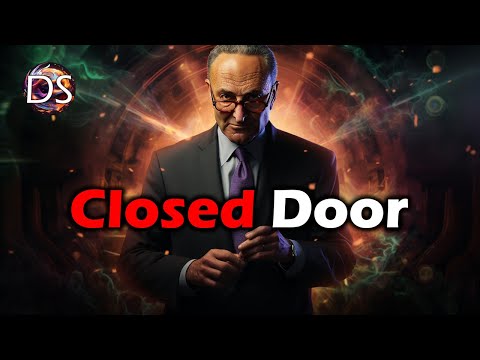Closed Door Senate Session
Attendees
Rumman Chowdhury – Advocates for red-teaming and safety
Tristan Harris – Alignment with humanity
Alex Karp – AI for law enforcement and intelligence operations
Deborah Raji – Algorithmic bias and accountability
Janet Murguia – Civil rights activist
Charles Rivkin – MPAA?
Elizabeth Shuler – Labor rights advocate
Meredith Stiehm – Writers (creatives)
Randi Weingarten – Teachers
Maya Wiley – Human and civil rights
Overview
6-hour bipartisan AI forum hosted by Sen. Chuck Schumer with tech executives, advocates, and researchers
Chuck Schumer also proposed the SAFE Innovation Framework
Closed door meeting with limited press access to enable candid conversations
All Senators were invited, not all attended
Some Senators decried it as a PR stunt (???)
Already had many public hearings
“Ready to rip up the playbook [and try new things with AI]” – Unattributed Quotation
Why This Format?
Neoliberalism advocates for free-market capitalism and minimal state intervention. A specific principle within this ideology is that governments should consult and trust non-governmental experts for decision-making, contrasting sharply with Soviet-style central planning.
Free-Market Advocacy: Core principle of neoliberalism.
Minimal State Intervention: Government’s reduced role.
Expert Consultation: Reliance on non-governmental experts.
Decision-Making: Expert input valued for policy formulation.
Contrast with Soviet Dictums: Different from centralized planning.
Dr. Chowdhury
“Today was a momentous day – that’s me and Jutta Williams in the middle at the first AI Insights forum – or as I’ve been calling it, the most expensive meeting in history.
In seriousness – I was impressed with the quality and candor of conversation. The panelists and senators were engaged in direct and real conversation about realistic harms of AI and what government can do.
I advocated for increased funding and access for independent researchers and investment in a full ecosystem of governance – not just industry and government but independent third parties.
We talked about open source, education, access, sustainable innovation, guardrails, benchmarks and more. It’s a positive step forward.”
Agreement
Only three primary points of agreement, according to reporting:
Need for government intervention and regulation of AI development
This was a unanimous show of hands
All stakeholders
International coordination required, suggestion for AI “nuclear regulator”
General consensus around international regulation
Not as certain about international researcher
Funding and expertise development
General agreement on increasing government investment
There was agreement on the need to develop AI expertise within both the government and workforce.
Disagreement
Role of open source AI models
Mark Zuckerberg defended Meta’s release of the open source AI model LLaMA, saying open source democratizes access.
Tristan Harris said Meta unilaterally decided what was “safe” by releasing LLaMA publicly. His team found LLaMA could be prompted in harmful ways with minimal work.
Bill Gates countered Zuckerberg, saying there’s a difference between searching online versus interacting directly with an AI system.
Sam Altman said some things are fine open source, but we may not want all models fully public.
New regulator vs existing agencies to regulate?
No consensus reached
Workforce impacts and job losses from AI?
Tech execs not worried
Labor people, not so much
Regulatory Capture
Regulatory capture occurs when a regulatory agency becomes influenced or controlled by the industry it is supposed to regulate. This compromises the agency’s ability to act in the public interest, leading to skewed policies and regulatory failures.
Agency Influence: Regulatory bodies compromised by industry.
Public Interest: Compromised ability to serve general welfare.
Skewed Policies: Regulations favoring industry over public.
Regulatory Failure: Breakdown in intended oversight function.
Industry Control: The capturing entity, often having disproportionate power.



